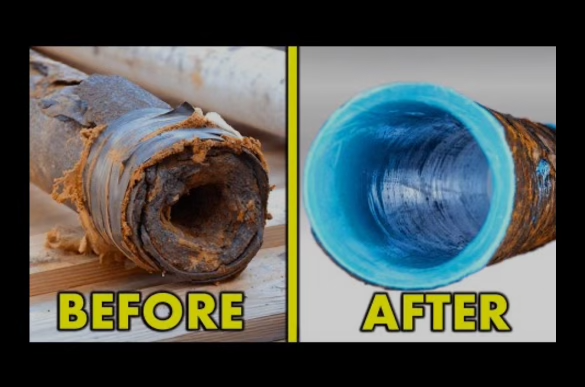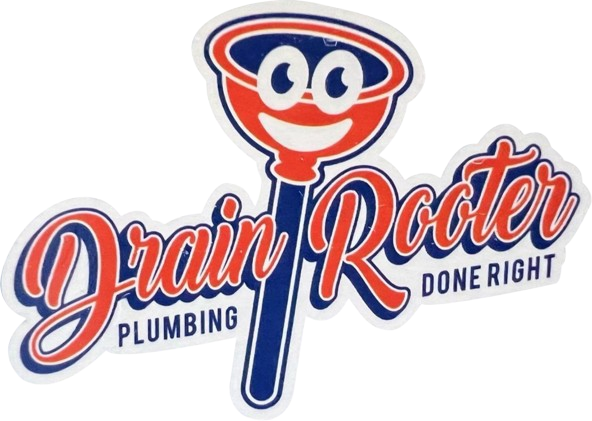Deciding on Water Heater Upkeep in 2024: Should You Repair or Replace for Economic Efficiency?
Deciding whether to repair or replace your water heater is a critical decision that impacts not only the comfort of your home but also your wallet. Water heaters are indispensable in our daily lives, providing hot water for showers, dishes, and laundry. However, when they malfunction or age, homeowners are faced with the tough choice of investing in repairs or opting for a new unit. In 2024, this decision is more significant than ever due to fluctuating market trends, rising energy prices, and the availability of more energy-efficient models. Making an economical choice now involves considering not just the immediate costs but also long-term savings and environmental impact. Advances in technology mean that newer models offer substantial improvements in efficiency and sustainability, factors that can influence the cost-effectiveness of replacing an older, less efficient water heater. This backdrop sets the stage for a nuanced discussion on the most economical path forward: repairing your existing unit or investing in a new, more efficient model.
Understanding Water Heaters
Water heaters come in various types, each with its unique features and benefits. Traditional tank water heaters store and heat water in a large tank, offering a ready reservoir of hot water. Tankless models, on the other hand, heat water on demand, providing endless hot water while being more energy-efficient. Solar water heaters utilize solar panels to capture energy from the sun, an eco-friendly solution that can significantly reduce energy costs. Heat pump water heaters, another efficient option, extract heat from the air or ground to heat water.
The average lifespan of these models varies: traditional tank water heaters typically last between 10 to 15 years, tankless models can last up to 20 years, and solar and heat pump water heaters often have a lifespan of 20 to 25 years. Common issues that may necessitate repair include malfunctioning heating elements, sediment buildup in tanks, leaks, and problems with the thermostat or pressure relief valves. Addressing these issues promptly can extend the life of the unit and ensure efficient operation.
Factors Influencing the Decision
The age of a water heater is a pivotal factor in determining whether to repair or replace it. Comparing the unit's age to its expected lifespan provides insight into its remaining efficiency. For instance, a traditional tank water heater nearing the 10-15 year mark may be at the end of its useful life, experiencing diminished efficiency and increased risk of failure. Conversely, a tankless model with a 20-year lifespan might still offer several years of efficient service.
When considering repair costs, it's essential to weigh these expenses against the water heater's current value. Minor repairs like replacing a thermostat or heating element might be cost-effective, but significant issues such as tank leaks often signal that replacement is a more prudent financial decision. The cost of repairs can accumulate, especially for older units, making replacement a more economically sound choice in the long run.
Modern water heaters boast superior energy efficiency, which can translate to considerable savings on utility bills over time. Upgrading to a newer, more efficient model can offset the initial investment through reduced energy consumption. This is particularly relevant as energy prices continue to rise and efficiency standards become stricter.
Frequent repairs not only pose an inconvenience but can also become a financial burden. If a water heater requires regular fixes, the cumulative cost might exceed that of a new, reliable unit, making replacement the more economical choice.
Lastly, assessing current and future needs is crucial. A water heater that was once adequate for a smaller household may no longer suffice as family size or hot water demand increases. Upgrading to a model that matches these evolving needs ensures efficient and effective water heating, avoiding the inefficiencies and inadequacies of an outdated unit.
Economic Analysis of Repairing
In 2024, navigating the landscape of water heater repair costs requires an understanding of the common issues and their associated expenses. For instance, replacing a faulty thermostat or heating element in a traditional tank water heater might cost between $150 to $300, depending on the model and labor rates. A pressure relief valve replacement could range from $100 to $200, while fixing minor leaks might cost upwards of $200, contingent on the complexity of the repair.
Executing timely repairs can significantly extend the life of a water heater, enhancing its efficiency and postponing the need for a costly replacement. Addressing issues such as sediment buildup through regular flushing or replacing worn-out anodes can maintain the unit's performance and prevent more severe problems down the line. This proactive approach to maintenance can extend a water heater's lifespan by several years, offering substantial economic benefits by maximizing the value of the initial investment.
Repairs often present a more economical choice under specific circumstances. For water heaters that are relatively new and still under warranty, repairs are generally straightforward and inexpensive. Minor issues, such as a malfunctioning thermostat or a single faulty heating element, can usually be rectified at a minimal cost compared to the price of a new unit. In such cases, repairing the water heater preserves its utility without imposing the significant financial burden of a complete replacement. This cost-effective strategy allows homeowners to enjoy uninterrupted hot water service while deferring the considerable expense of purchasing and installing a new water heater.
Economic Analysis of Replacing
In 2024, the cost of new water heaters varies significantly depending on the type and model. Traditional tank water heaters may range from $500 to $1,500, while tankless models, known for their efficiency and longevity, can cost between $1,000 and $3,000. Solar water heaters, with their eco-friendly credentials, are priced higher, typically between $2,000 and $5,000, including installation. Heat pump water heaters also fall within this higher price range due to their advanced technology and energy-saving capabilities.
Modern water heaters are engineered for superior energy efficiency, which translates into potential savings on utility bills. For example, tankless water heaters, by heating water on demand, can save up to 30% in energy costs compared to traditional tank models. Similarly, heat pump and solar water heaters can offer even more significant savings due to their innovative use of renewable energy sources.
To encourage the adoption of energy-efficient appliances, various incentives, rebates, and tax credits are available in 2024. These financial incentives can substantially reduce the upfront cost of energy-efficient models, making them a more attractive option for homeowners.
While the initial installation costs of these advanced water heaters can be higher, the long-term economic benefits, including reduced energy consumption and lower utility bills, contribute to a favorable return on investment over time. These savings, coupled with the environmental benefits of reduced energy usage, make the investment in a new, efficient water heater a wise choice in 2024.
Case Scenarios
Consider two scenarios: First, an 8-year-old tank water heater with a minor leak. Given its age, slightly below the average lifespan of 10-15 years for tank models, and the nature of the problem, repairing the leak could be a cost-effective solution. The repair might cost a few hundred dollars, significantly less than purchasing a new unit, and could extend the heater's life by several years, making it an economical choice in the short term.
In contrast, a 15-year-old water heater experiencing frequent breakdowns presents a different dilemma. At this age, the unit is likely at or beyond its expected lifespan. Continuous repairs, which could range from minor to major, will add up, potentially exceeding the cost of a new, more efficient model. In this scenario, replacing the water heater would be more economical. Investing in a new unit could eliminate the recurring repair costs and offer improved energy efficiency, leading to lower utility bills, making replacement the financially sound decision over the long term.
Making the Right Choice
Weighing the pros and cons of repairing or replacing a water heater involves a comprehensive evaluation of factors such as the unit's age, repair costs, energy efficiency, frequency of repairs, and alignment with current and future household needs. Homeowners should consider the immediate and long-term financial implications, including the potential for energy savings with newer, more efficient models and the cumulative cost of ongoing repairs for older units.
Professional assessments play a crucial role in this decision-making process. A qualified technician can provide an accurate diagnosis of the water heater's condition, estimate repair costs, and offer insights into the expected lifespan of the unit. This expert evaluation helps homeowners make informed decisions based on the technical health of their water heater and the economic feasibility of repairs versus replacement.
Future-proofing the investment in a water heater means considering advancements in technology. New models are continually becoming more energy-efficient, with features that can lead to significant savings over time. Opting for a model that incorporates the latest technology can ensure that the investment remains beneficial in the long run, both economically and environmentally.
Conclusion
In conclusion, the decision to repair or replace a water heater in 2024 is nuanced, requiring careful consideration of both immediate and long-term economic implications. Drain Rooter Plumbing SD emphasizes the importance of assessing the age and condition of your current unit, repair costs, energy efficiency, and how well it meets your household's needs. A thorough evaluation, possibly with the assistance of a professional from Drain Rooter Plumbing SD, can illuminate the most cost-effective path forward. Whether it's repairing a minor issue to extend the lifespan of your current heater or investing in a new, energy-efficient model to capitalize on long-term savings, making an informed decision is crucial. We encourage you to reach out to Drain Rooter Plumbing SD at 619-280-7000 for expert guidance in navigating this decision, ensuring you make the most economical choice for your home's hot water needs.



